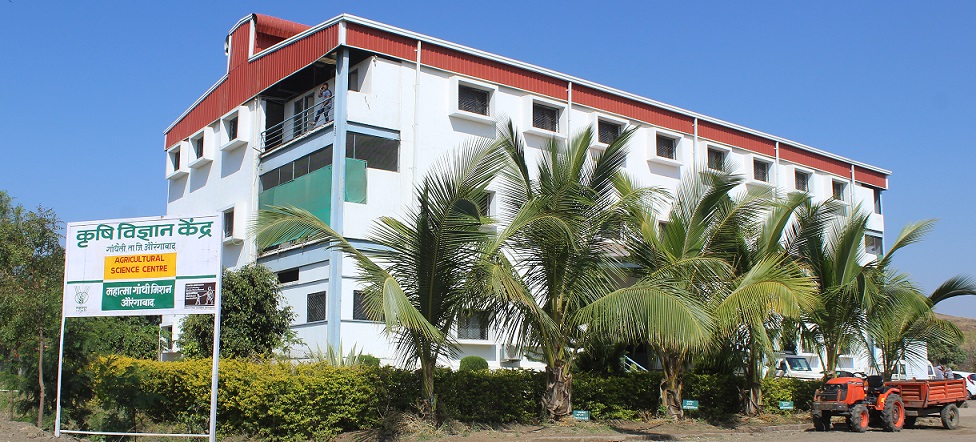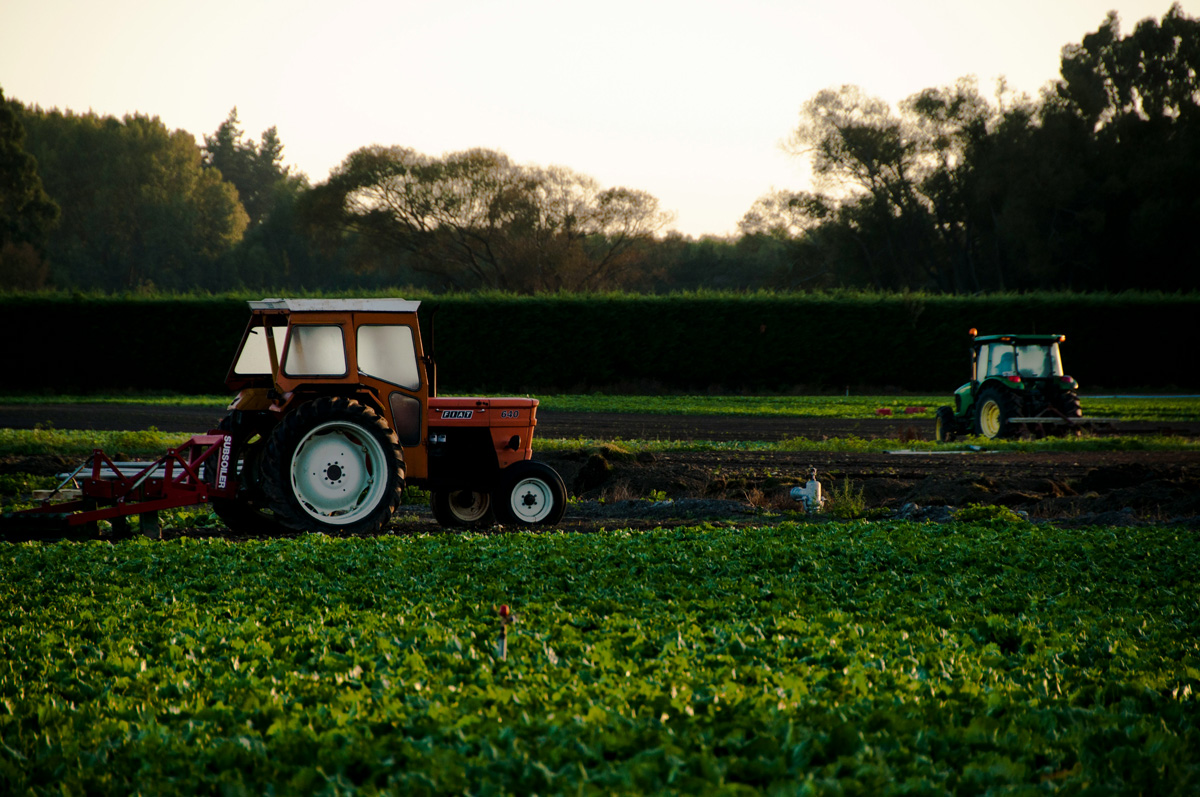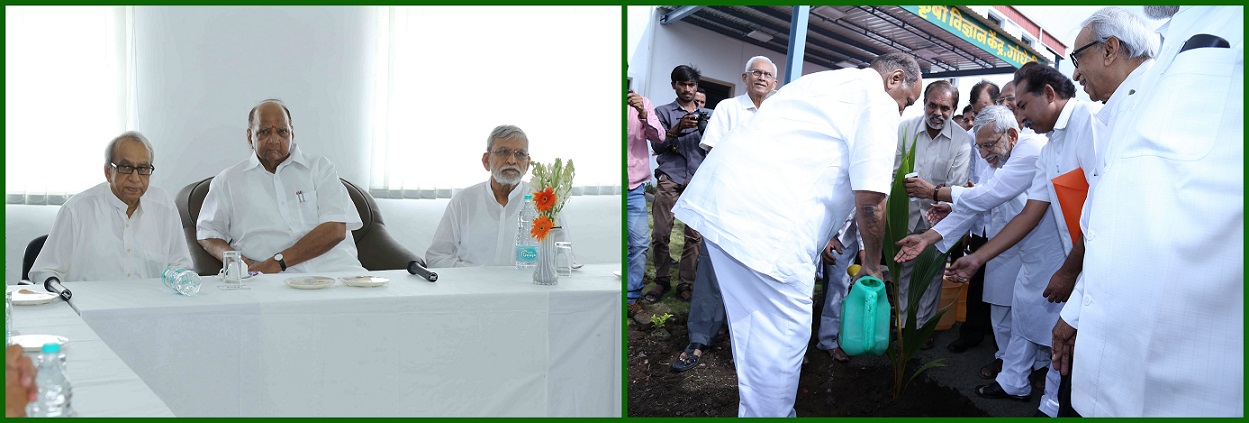
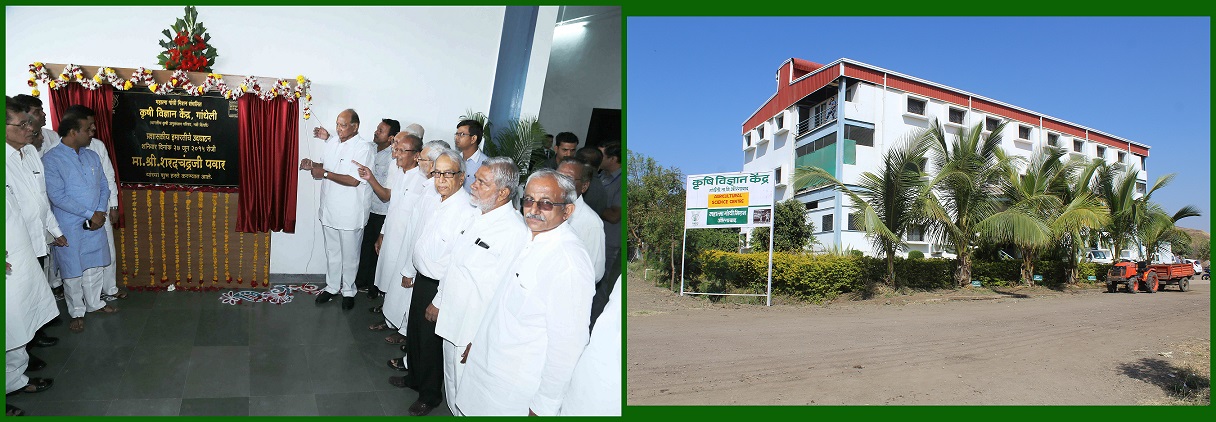
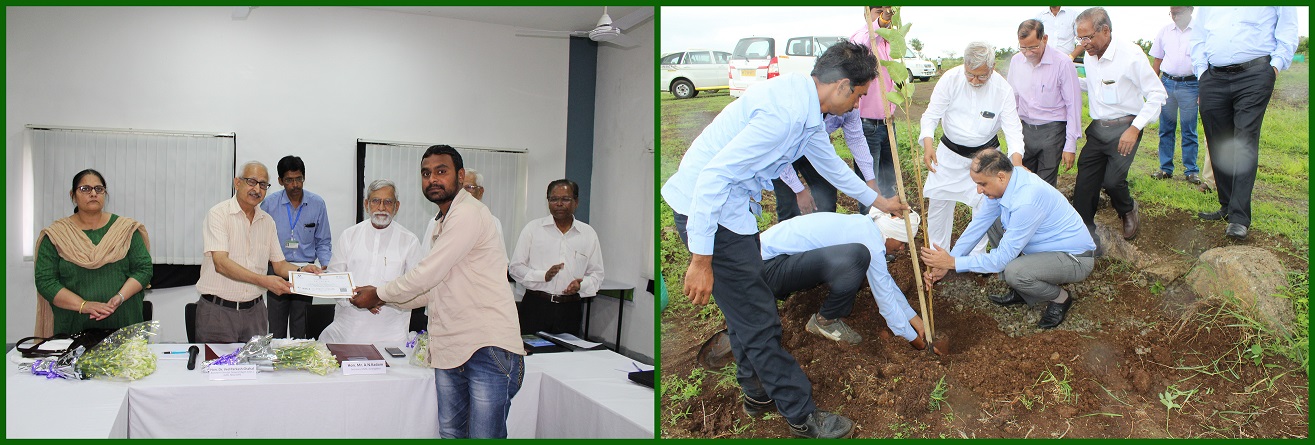
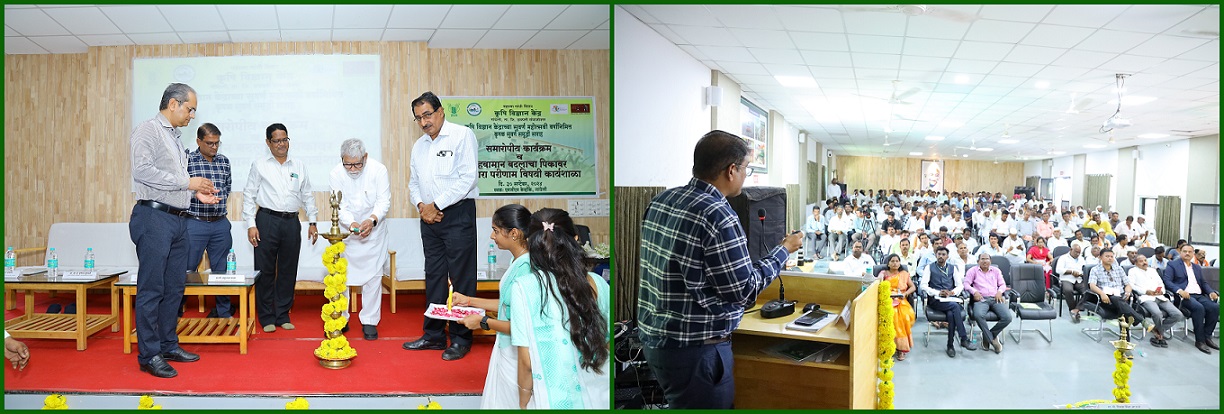
Welcome to Krishi Vigyan Kendra, Aurangabad-II:
Introduction
……………………………………………………… 1. Name and Location of KVK : Krishi Vigyan Kendra-Aurangabad-II, Dist-Dist. Aurangabad (M.S.) 431007 2. MGM Krishi Vigyan Kendra : Krishi Vigyan Kendra, Gandheli, Aurangabad, under the administrative control of Mahatma Gandhi Mission, Aurangabad started it’s functioning in the year 2011, with the financial support from the Indian Council of Agricultural Research, New Delhi. Krishi Vigyan Kendra is a planned project of Indian Council of Agricultural Research, New Delhi for transfer of agricultural technology to the farming community. Overview
एमजीएम कृषी विज्ञान केंद्र, गांधेली, छत्रपती संभाजीनगर या अधिकृत व्हाट्सअप चॅनेल मध्ये आपल्या सर्वांचं सहर्ष स्वागत आहे.
शेतकरी मित्रांनो खास आपल्यासाठी शेतीशी निगडित समस्या, माहिती, कृषी सल्ला तसेच मोफत निवासी प्रशिक्षण करिता हा ग्रुप तयार केलेला आहे तरी आपणा सर्वांना विनंती आहे की छत्रपती संभाजीनगर जिल्ह्यातील सर्व शेतकऱ्यांनी या ग्रुपमध्ये जास्तीत जास्त संख्येने सहभागी व्हावे.
धन्यवाद
Follow the एमजीएम केव्हिके कृषिमित्र channel on WhatsApp: https://whatsapp.com/channel/0029VbAeu6rIyPtarYN3Ra32
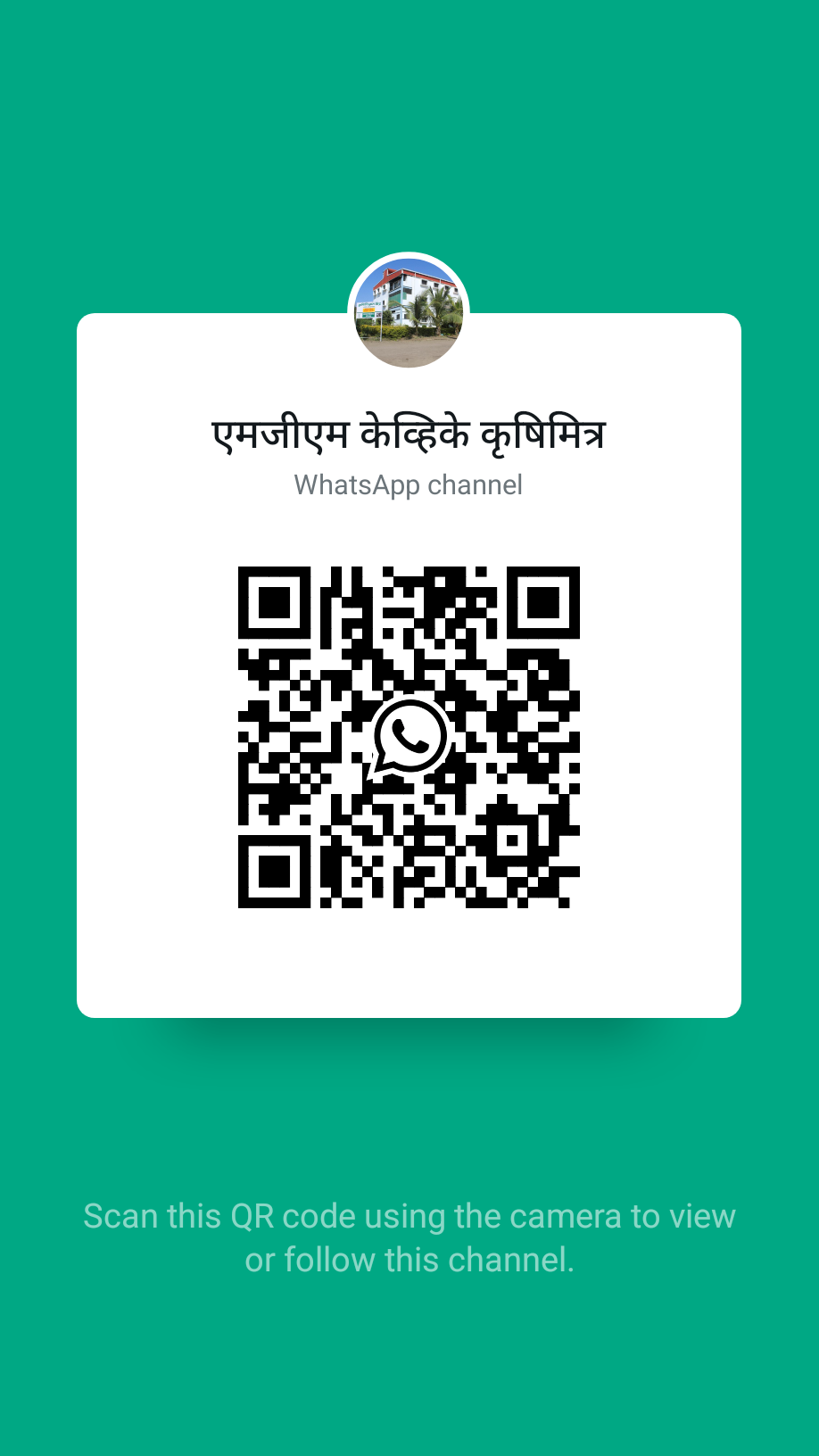
Mandate of KVK
Krishi Vigyan Kendra, Gandheli, Aurangabad, under the administrative control of Mahatma Gandhi Mission, Aurangabad started it’s functioning in the year 2011, with the financial support from the Indian Council of Agricultural Research, New Delhi. Krishi Vigyan Kendra is a planned project of Indian Council of Agricultural Research, New Delhi for transfer of agricultural technology to the farming community.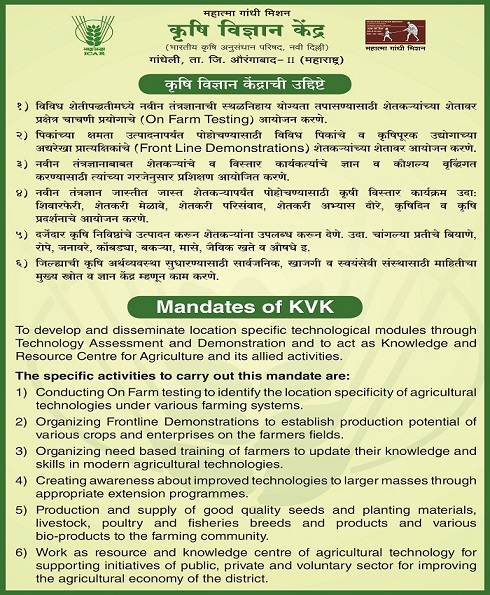
Major Activities of KVK
Transfer of Technology” to the framers in order to increase their socio-economic status is a major objective of the KVK. Before implementation of activities, KVK has continuously given major thrust on assessment of POIN (Problems, Opportunities, Issues and Needs) of the farming community. Prior to finalization of annual action plan, KVK analyzes the gap in adoption of technologies. The annual report of Agro Ecological Situation (AES) of the district is the basis while selecting the villages. Similarly, before conducting the activities, a benchmark survey is also conducted to record the socio-economic conditions of the villages. Identification of the beneficiaries for training, demonstration, OFT(On Farm Testing) and other extension activities are conducted amongst the groups of pre identified farmers’ This helps to get a positive response from the farming community.The Mandates and Objectives of Krishi Vigyan Kendra (KVK) are as follows-
Mandates: Conducting “On-Farm Testing” for identifying technologies in terms of location specific sustainable land use systems. Creating awareness about improved technologies to larger masses through appropriate extension programmes. Organizing short and long term training courses in agriculture and allied vocations for the farmers and rural youths with emphasis on “Learning by doing” for higher production on farms and generating self-employment.Quick Links
News and Updates
On Going Programmes
Projects
Telephone Directorory
Contact Us : Krishi Vigyan Kendra, Aurangabad-II, Gandheli, Tq. Dist. Aurangabad (M.S.) 431007
